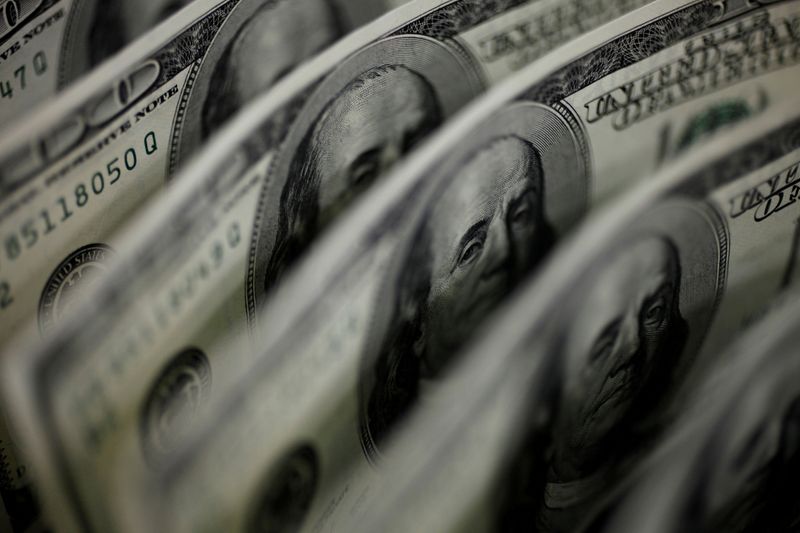By Hideyuki Sano
TOKYO (Reuters) – The dollar held ground against riskier currencies on Monday as weak economic data from Europe and fresh worries about the coronavirus supported investor demand for safe-havens, stretching greenback selling positions.
Economic activity in the euro zone shrank markedly in January as stringent lockdowns to contain the coronavirus pandemic hit the bloc’s dominant service industry hard while UK data showed British retailers struggled to recover in December.
British Prime Minister Boris Johnson also said on Friday there was evidence a new variant of COVID-19 discovered late last year could be associated with higher mortality.
The news came as bets against the dollar have become overcrowded, analysts said, with U.S. data on Friday showing net dollar short positions swelling to the largest since May 2011.
The dollar index stood at 90.247, flat on the day but off last week’s low of 90.043 set on Thursday.
The euro was also little changed at $1.2163, taking a pause after a 0.8% gain last week. The common currency is capped in part by signs of political instability in Rome.
Italian bond yields rose with spreads over German Bunds hitting their highest since November amid a political impasse for Prime Minister Giuseppe Conte who has so far failed to drum up a ruling majority in Italy’s parliament.
Conte appealed to centrist and unaligned upper house lawmakers outside the coalition to join his minority government’s ranks but few have responded.
“Given Conte won a confidence vote, a dissolution of the parliament and a general election is unlikely,” said Makoto Noji, chief currency strategist at SMBC Nikko Securities.
Nonetheless, Italy’s case demonstrates the widespread risks of political instability from popular discontent as communities grow weary of the pandemic.
“The stock markets’ rally during this pandemic is completely dependent on fiscal expansion and debt monetisation by central banks,” Noji said. “Political instability could delay fiscal measures.”
In Washington, the honeymoon after Joe Biden’s inauguration as President last week means investors are hopeful that at least a part of his $1.9 trillion coronavirus relief plan will come through fairly soon.
But Biden will likely need bipartisan support to push his agenda as Democratic Party narrowly controls Congress while the second impeachment trial of former U.S. President Donald Trump expected early next month could complicate his efforts.
Against this backdrop, the Federal Reserve is expected to maintain its strong commitment to accommodative monetary policy when it holds its first policy meeting later this week.
Elsewhere, the British pound held firm at $1.3684, not far off a 2-1/2-year high of $1.3745 touched on Thursday thanks in part to Britain’s lead in COVID-19 vaccinations.
The dollar traded flat at 103.80 yen.



